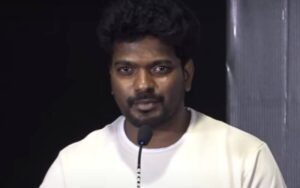Madras HC imposes fine of Rs One lakh on Actor Vijay for trying to evade Entry tax on imported Rolls Royce car
The Madras High Court imposed a fine of Rs One lakh on actor Vijay, saying that a writ petition for avoiding tax can never be appreciated.

Dismissing a petition filed by actor Vijay through which he was trying to avoid paying an entry tax imposed on his imported Rolls Royce car by the state of Tamil Nadu, the Madras High Court today imposed a fine of Rs One lakh on the actor, saying that a writ petition for avoiding tax can never be appreciated.
Coming down hard on the actor, the High Court observed that if the rich, affluent and reputed persons fail to pay the tax as applicable, then the way to achieve constitutional goals would be long.
Vijay filed the petition in the year 2012 when he imported a Rolls Royce car from England. In the petition, he claimed that he had paid the import duty to the Customs Department as per the Customs Act and had then approached the Regional Transport office for getting his vehicle registered. However, he was redirected to an Assistant Commissioner who imposed an Entry Tax on his vehicle.
Vijay, citing Article 226 of the Indian Constitution, prayed to the court to issue an order exempting him from the tax.
The court dismissed Vijay’s plea, even as it expressed surprise that the petitioner had not even bothered to reveal his occupation in the affidavit.
The court observed that taxation is not a voluntary payment or donation, which one decides on one’s own, and that it is a mandatory contribution.
Stating that Vijay must behave as a real hero and not a reel hero, considering the fan base he had, the court observed that,”These actors are portraying themselves as champions to bring social justice to society. Their pictures are against corrupt activities in society. But they are evading tax and are acting in a manner which is not in consonance with the provisions of the statutes.”
The court further observed, “The noble perspective of the Constitution under the Directive principles can be achieved only if the people of such stature, rich, unhesitatingly pays Tax to the Government and comply with the Laws of the Land. Filing a writ petition, avoiding payment of Entry tax and keeping the writ petition pending for about nine years can never be appreciated, and it is not made clear even now whether the Entry tax as applicable has been paid by the petitioner or not.”





